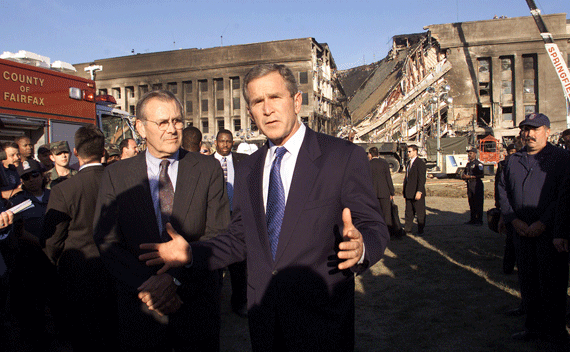TWE on Camera: How did 9/11 Change the Balance of Power in Washington?

CFR.org just posted a short video interview I did on how 9/11 changed the balance of power in American politics. The attacks triggered a dynamic as old as the Republic: when the country sees itself threatened from abroad, power flows away from Congress and toward the president. The balance tilted after 9/11 in part because people believed strong presidential leadership was needed. It also tipped because lawmakers feared being accused of being “unpatriotic” for opposing what President Bush wanted to do, especially given that his public approval ratings went from 55 percent before the attacks to 90 percent after them. Popularity is power in Washington.
More on:
But as the fear of terrorist attacks receded and discontent with Bush’s policy choices grew, power shifted back toward Capitol Hill. Now ten years after 9/11 and two years after the global financial crisis, the era of terrorism has given way to the era of fiscal austerity. For better or worse, Congress is far less willing to defer to the White House. In the case of foreign policy that doesn’t mean that President Obama can’t prevail—witness New START and Libya. But it does mean that he has to pay a much higher political price to get his way.
More on:
 Online Store
Online Store